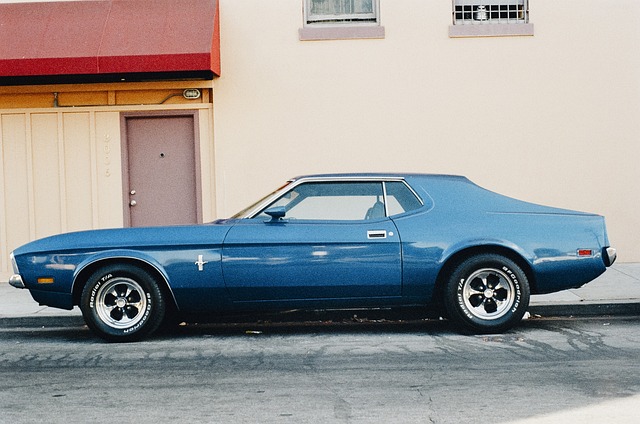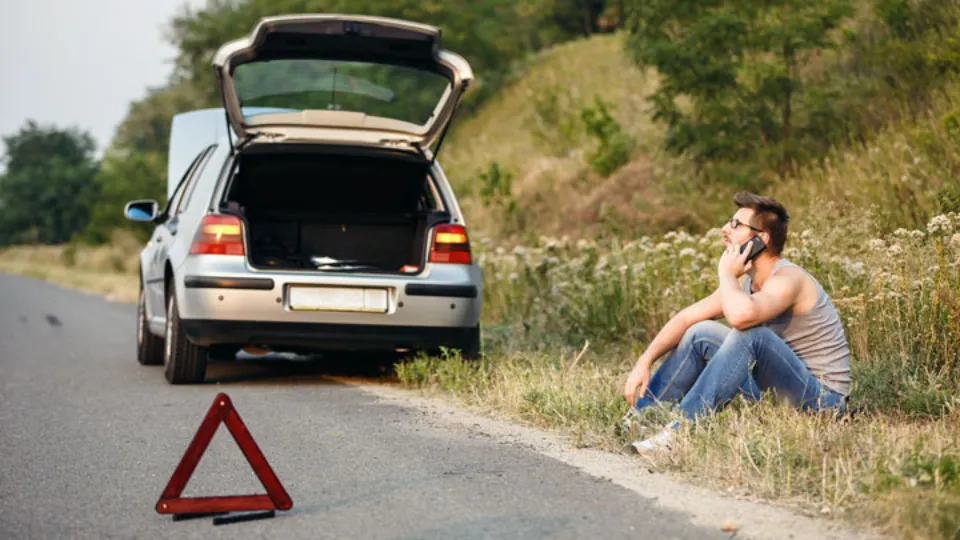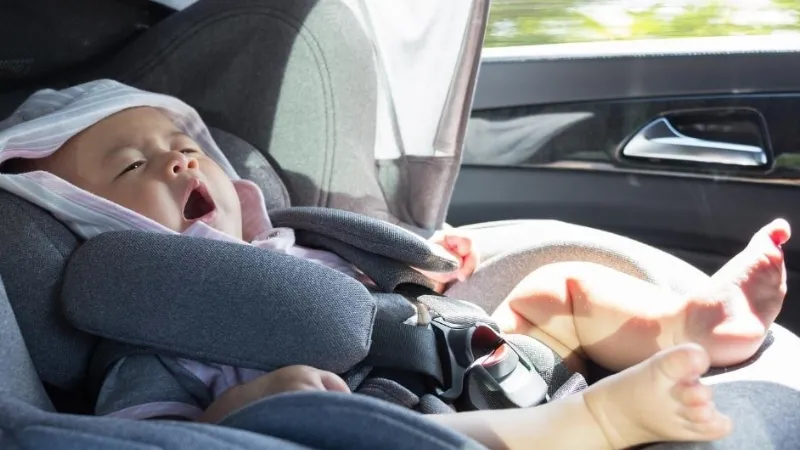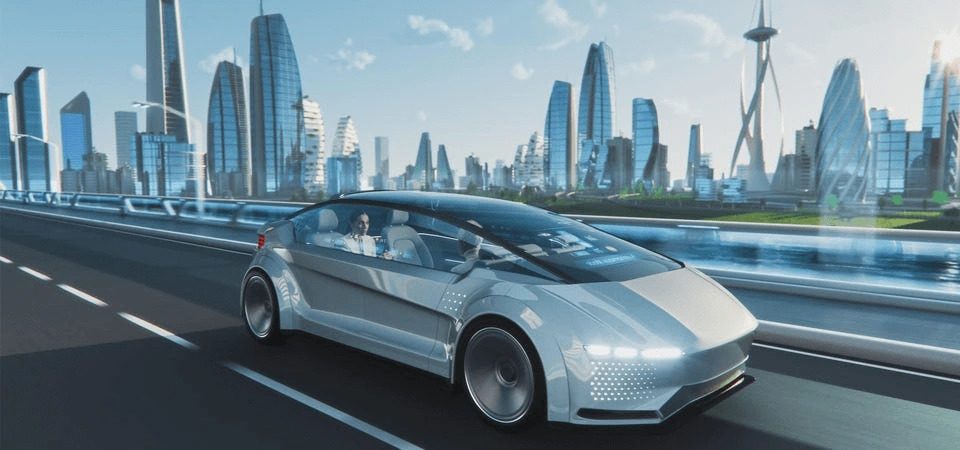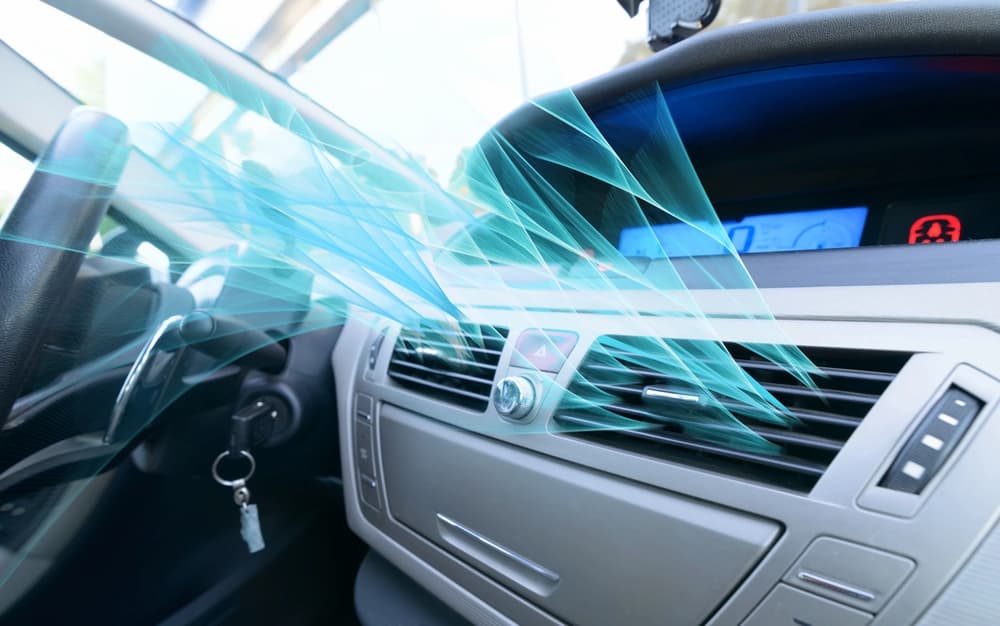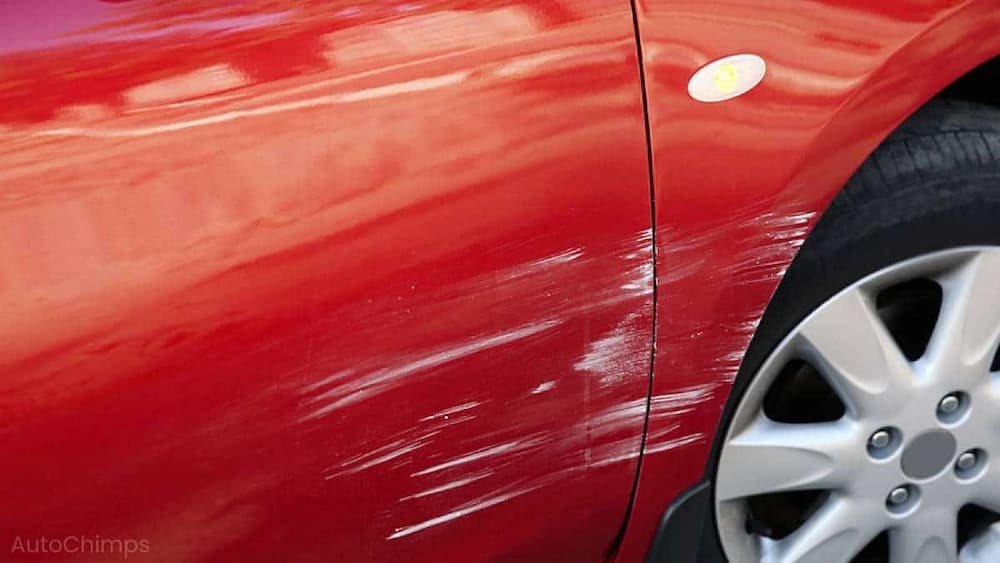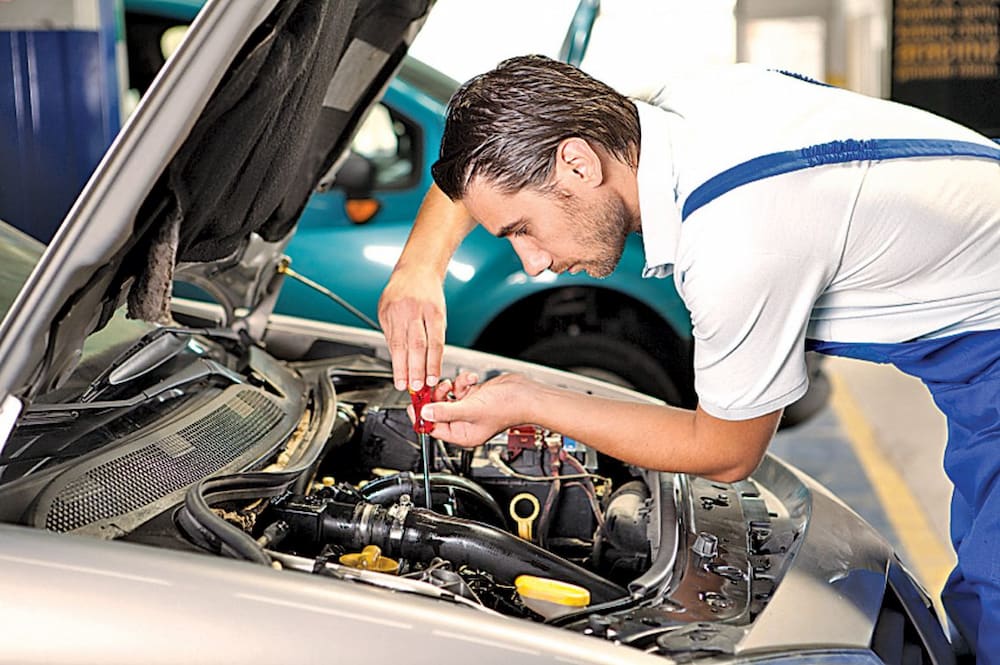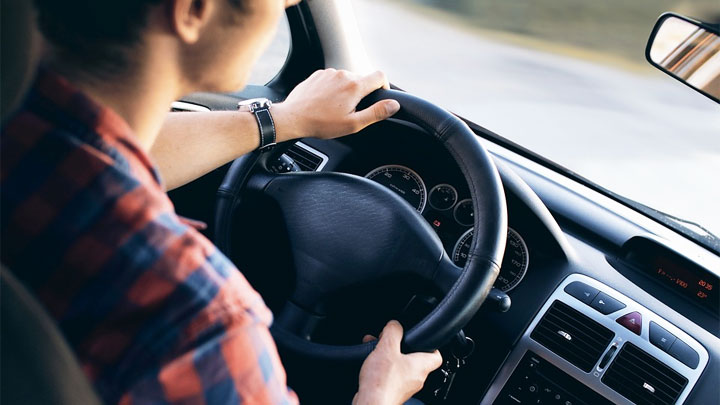What to do while the car shuts off while driving?
The most common reason a car shuts off while driving is due to a bad crankshaft position sensor or issues with the fuel system. Additionally, a faulty ignition switch, bad alternator, empty fuel tank, or issues with the car’s engine sensors can cause it to occur.
For more information about how to prevent car shutoffs while driving, continue reading.
Table of Contents
Car Shuts Off While Driving Reasons
Out Of Fuel
One of the most typical causes of a car dying while you’re driving is a lack of fuel.
Sometimes a fuel leak is to blame, and other times the driver is at fault for not filling up the tank.
It’s also possible that the fuel gauge malfunctions and gives false readings.
Regardless of the cause, a car without fuel won’t start and will eventually shut down wherever you are.
When there is roughly 10% of the fuel capacity left, the fuel light will typically come on in cars. This is the first signal that you need to refuel.
The car will start sputtering for a moment or two before you notice that pressing the gas pedal has no longer any effect, but there won’t be any other overt warning signs when there is no fuel left.
The car will begin to slow down, so you must move quickly to bring it to a place where you can safely come to a stop.
All you have to do is refuel the car once you are in a secure area. Ascertain that you have enough fuel to reach the closest gas station and fill the tank.
Bad Ignition Switch
Another possible culprit is the ignition switch.
When the ignition switch is turned, the electrical systems are turned on and the ignition system is given power. This all happens when the car’s key is turned.
The engine will stall if there is no ignition system because there won’t be any combustion.
It is sometimes possible to simply turn the key and the car will start again. If so, you ought to make an effort to pause in a secure location and deal with the issue.
Faulty Alternator
All of the electronic parts of a car operate because of the alternator. This pertains to the spark plugs as well as the ignition coil.
The good news is that a malfunctioning alternator typically manifests symptoms before it deteriorates to the point where the engine stalls while you’re driving.
Some symptoms include dimmed lights, flickering lights, a dead battery, and more.
You will need help moving the car if your alternator isn’t working because it won’t start again.
RELATED:Signs Of A Bad Alternator
Bad Fuel Pump/filter
A car’s internal combustion engine requires fuel to function, as was previously mentioned.
Although there might still be fuel in the tank, not enough of it is getting into the combustion chamber.
This could be due to a bad fuel pump or a bad fuel filter.
The purpose of the fuel filter is to trap dirt and other contaminants that shouldn’t enter the combustion chamber and fuel lines.
It needs to be changed frequently, just like any other kind of filter. It can clog up and stop all fuel flow if it is not replaced.
The engine will shut off if fuel cannot be transported from the fuel tank to the combustion chamber.
Similar to that, a fuel pump forces fuel from the fuel tank. Without a pump, there is nothing to force the fuel into the combustion chamber, which results in the engine cutting out.
Similar to an alternator, a bad fuel pump or filter will typically become apparent before it gets to the point where it shuts down the engine.
In both cases, the specific part must be replaced to keep going.
Ignition System Problems
The spark that ignites the air-fuel mixture inside the engine of your car is produced by the ignition system. The subsequent series of explosions produce the energy required to move your car forward. The ignition system’s spark is necessary for the car to run.
As you might expect, issues with the ignition system can result in stalling while you’re driving. An ignition system component that affects all of the engine’s cylinders, like a malfunctioning crankshaft position sensor, typically causes the problem as opposed to one that only affects one cylinder (like a faulty spark plug, for example)., a bad spark plug).
The ignition switch is another ignition-related element that frequently results in engine stalling. The ignition switch creates a path for electricity to flow from the battery to the engine management elements, including the fuel injectors and ignition coil(s), when the key is in the “run” position. The engine will stall if the switch doesn’t make good contact.
Fuel Delivery Issues
There are numerous fuel system designs in use today. However, a typical port-injected fuel system uses a low-pressure pump to transfer fuel from the tank to the engine’s fuel injectors.
Engine stalling can be caused by a lack of fuel pressure or volume. Fuel pump failure or a fuel pump relay malfunction are frequent offenders. On return-type fuel systems, a clogged fuel filter or a damaged fuel pressure regulator are also frequent problems.
The fact that the car is out of gas is another issue that is frequently disregarded. The fuel gauge can malfunction or be inaccurate at times. Because of this, you may not notice that you are running low on fuel until the engine quits.
Battery And Charging System Problems
All of your car’s electronics, including the parts that keep the engine running (the computer, the fuel injectors, etc.), are powered by the battery and charging system.). The entire vehicle can run out of electrical power due to something as simple as a loose battery cable, stalling the engine. A vehicle that stops running while you’re driving can also be caused by an overcharged or undercharged alternator.
Internal Engine Failure
A car that crashes due to an internal engine failure is without a doubt the worst-case scenario. There’s a good chance that when the engine fails, you’ll hear some unsettling noises (rattling, knocking, etc.) right before the vehicle stalls. A car that has an internal engine failure will frequently not restart.
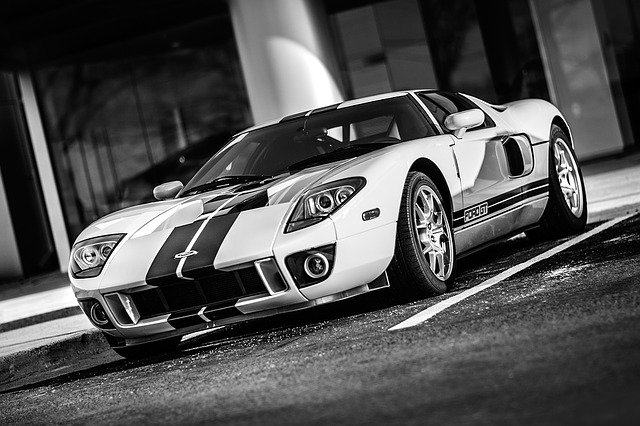
Possible Solutions To Car Shuts Off While Driving
The car may turn off while you’re driving for a variety of reasons. However, how you respond to the situation is what really matters. Here are a few approaches that will help you determine the best course of action for your particular problem.
Check And Tighten Electric Cables
The electrical cables can be loosened, which is one of the simplest fixes for the car. The most important thing is that you can do it yourself and are not required to hire a professional mechanic. The only time you should do this is if you think the issue is related to the cables. You can immediately fix cables if they cause the car to shut off. Look for the one that is powered by the battery and fuse box. Try to find the slack cable, then gently tighten it. Sometimes a cable will also have permanent damage. The cable needs to be changed in order to solve the issue.
Install A New Fuel Pump
Many issues, including loss of power and acceleration, as well as the car cutting out, can occur when there is a malfunctioning fuel pump. To address the issue, you must repair it. The bad fuel pump should be replaced as the best course of action. If you’re a seasoned driver, you can replace it without assistance from a professional.
Clean Or Replace The Alternator
Maintaining the alternator and battery connection clean will help you avoid an anticipated car shutoff. Additionally, this will aid in ensuring the car runs smoothly. You can quickly identify an alternator problem by looking for a variety of symptoms, such as headlight flickering, rough engine operation, quick battery drain, and dashboard warning lights. The alternator can be easily cleaned. Even if you break it, you can replace it on your own. You can perform quick maintenance on the alternator, which is available at a reasonable price.
Take Vehicle For Comprehensive Ecu Inspection
The ECU needs to be inspected occasionally. The ECU is a crucial part of the vehicle. You won’t be able to fix it on your own, though, if it causes the car to misbehave or shut off. In order to learn more about the error codes, you must purchase an OBD2 scanner. It is advised to take the car to a mechanic so they can perform a complete ECU inspection.
Refuel The Car And Fix Fuel Gauge
Frequently, when you refuel your car, it will start up. Usually, this happens when the car runs out of fuel. Remember that you’ll need to check the fuel gauge. You need to take care of any problems if there are any. You won’t get the right idea of how much fuel is left due to a malfunctioning fuel gauge.
What To Do If Car Shuts Off While Driving?
Power Surges And Lags
Poor fuel delivery frequently results in power surges and lags. Fuel will slosh on and off of the fuel pump when you have low fuel, until the pump runs out of fuel and shuts off. It is likely to lose pressure at high RPM or when under load if the fuel pump itself is failing. Another sign would be if it started to make whining or whirring noises, but only from the backseat or near the gas tank.
Occasional Misfires
Ignition issues are probably to blame for occasional misfires. A fouled spark plug, a defective coil plug or distributor, or a faulty connection between them could all be to blame.
Running Consistently Rough
The sensors that detect airflow or oxygen are probably malfunctioning if the vehicle is running consistently rough and using little fuel. The amount of fuel, timing, and ignition will be calculated incorrectly by the car if it receives inaccurate information about how much air it needs. This could be a persistent problem or it might only impact a specific RPM range, depending on the sensor malfunction and the CPU feedback loop it affects.
Clattering And Bangs
Clattering and banging are typically signs of a more serious mechanical problem that needs to be diagnosed by a professional. Your vehicle may frequently have a blown engine.
Intake Sensors
The right proportion of air and gas must be combined for the gas to burn. Your car’s air intake varies significantly depending on factors like altitude, speed, temperature, and humidity. To inject the right quantity of fuel for combustion, your car needs to determine how much air is entering the vehicle. Your vehicle uses either a Manifold Absolute Pressure (MAP) or a Mass Air Flow (MAF) sensor to accomplish this. Acceleration hesitancy, jerking, or stalling may result from an air intake sensor that has become clogged or damaged. Vehicles with carburetors operate on a vacuum tube system. Rough idle or engine stalling may result from cracked vacuum tubes.
Exhaust Sensors
Additionally, your car has oxygen (O2) sensors in the exhaust to track the levels of unburned oxygen. In order to control the vehicle’s engine management, the O2 sensors communicate with the computer. The combustion mixture is running “Rich” when the O2 sensors detect insufficient oxygen. This indicates that there is an excessive amount of fuel being injected compared to the amount of air. The combustion process is considered to be “lean” when the O2 sensors detect excessive oxygen levels. This may be brought on by inadequate gas injection from the fuel injectors, excessive airflow from the air intake, or an air leak in the exhaust system. The car’s computer will be instructed to add more fuel to the engine to improve the combustion mixture if the O2 sensors notice this. The car defaults to this action as part of its “Open-loop mode” operation if the O2 sensors malfunction and don’t send any signal. In addition to the visible symptoms of a rough idle and a loss of engine power, this extra fuel will reduce fuel efficiency, increase emissions, and possibly clog the catalytic converter.
Recognize & Repair A Car Shuts Off While Drivingg
Here are some things you should do if your car keeps cutting out while you’re driving.
- The fuses should be checked first. To check if the issue was a fuse, remove each one and then replace it. Continue to the wiring harnesses if not.
- Examine each wire leading up to your ignition coil if you suspect a wiring issue. The coil requires power in order to function, and the car will shut off if it is not receiving it.
- The most frequent reasons for ignition coil issues are faulty spark plug wire installation or loose connections.
- If you discover any corrosion on the connectors, clean them up, give them a contact cleaner spray, and check to see if the car will start once more. Your ignition coil may be broken if you are still experiencing issues.
FAQs About Car Shuts Off While Driving
Will My Car Shut Off If I Need Oil?
No, not necessarily, but in some circumstances you might need to change the oil frequently. The last thing you want is for your car to break down while driving because it isn’t getting enough oil. Get an oil change if you intend to drive your car for a considerable amount of time.
What Takes Place If Your Car Is In Drive When You Turn It Off?
Even if you turn off your car while it’s moving, it will keep moving. Being unable to control a vehicle at an intersection or change lanes makes it potentially dangerous. A person or object could be struck by the car very forcefully. If this occurs, it is regarded as a traffic accident and needs to be reported right away to prevent further harm or injury.
Conclusion
When a car shuts off while being driven, the article discussed it.
It is very frustrating when your car shuts off while you are driving. By using the various available car checkup devices, you can always stop it by recognizing the warning signs. If you own a car and use it for personal transportation, you should carefully read the article and keep all of the points in mind. In such a worst-case scenario, the troubleshooting steps will be very helpful.
Thank you for reading.


